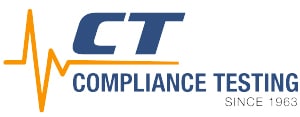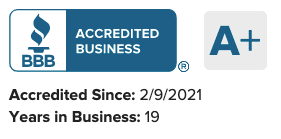Get Free Help From Our Engineers With EMC Compliance in Canada (ISED)
Need help complying with Canadian EMC regulations? We work with businesses and individuals across the country, including in Massachusetts, to achieve compliance with ISED regulations required for Canadian market access.
Click the “Talk to Our Team” button or call us on 866-540-5287 to ask our engineers your question about ISED Canada compliance, or request a free quote for testing and achieving ISED Canada authorization for your device.

If you’re an electronic device manufacturer or distributor and would like to sell your device in the Canadian market, it’s important to understand Canada’s regulations for electronic devices, such as ICES-001.
As one of several regulatory standards set by Innovation, Science and Economic Development Canada, ICES-001 is a key regulation that focuses on reducing radio frequency emissions from electronic devices.
It’s similar to FCC regulations in the United States, and compliance with ICES-001 and related Canadian standards can often be achieved during FCC testing.
As an ANSI-accredited EMC testing lab, we can help you test your electronic device and make sure it complies with ICES-001 regulations, allowing you to enter the Canadian market. Contact us online or call us at 866-540-5287 to request a free quote or talk to our compliance team.
You can also learn more about ICES-001 in the guide below, including how this standard works, its significance for Canadian market access, and a step-by-step approach to testing your device and achieving ICES-001 compliance.
What is ICES-001?
ICES-001 stands for Interference-Causing Equipment Standard-001. It’s one of numerous legal standards set by ISED (previously Industry Canada) to govern the function of electronic devices sold in the Canadian market.
Similar to FCC standards for electronics in the United States, ICES-001 is aimed at limiting the radio frequency emissions produced by digital apparatuses. More specifically, ICES-001 limits emissions from digital apparatuses used in industrial, scientific or medical (ISM) equipment.
By setting limits on radio frequency emissions, ICES-001 aims to prevent electronic devices in any common environment from causing interference. It’s similar to American regulations, such as FCC Part 15 and FCC Part 18, which set limits for radiated and conducted emissions.
Essentially, ICES-001 sets a limit on the maximum amount of electromagnetic interference that a device can emit, ensuring that devices can coexist and function without problems caused by excessive interference in a shared space.
ICES-001 and Canadian Market Access
Similar to FCC regulations in the United States and European Conformity (CE) requirements in the European Union, achieving compliance with ICES-001 is mandatory for access to Canada’s marketplace if your device falls within the scope of this regulation.
With a population of 38 million, Canada is a lucrative market for electronic devices. Testing your device and achieving compliance with ICES-001 is a critical step in receiving the ISED label and being able to market your device to Canadian businesses and consumers.
Much like the FCC can take legal action against non-compliant businesses in the United States, ISED can fine and restrict businesses that fail to comply with Canadian regulations.
Testing your device and adhering to ICES-001 ensures you won’t be subject to legal actions for non-compliance. It also demonstrates to consumers and partners that your products meet their high standards and are likely to perform well in a shared electronic environment.
How to Achieve ICES-001 Compliance
Like other regulatory standards for electronics, achieving compliance with ICES-001 involves a series of steps, from designing your device with the standard’s requirements in mind to testing your device with an accredited lab partner.
The good news is that ICES-001 compliance can often be completed at the same time as tests and compliance processes for FCC standards, reducing the relative costs and time required for testing your device.
Here’s a simplified version of the testing and compliance process:
- Understand the standard and its requirements. The first step is to understand how ICES-001 works and how it affects your product. ICES-001 limits emissions, meaning factors such as component selection and shielding can play a role in your results. Our team can help you understand the specific requirements of ICES-001 so that you can design your device with compliance in mind from the earliest stages.
- Consider pre-compliance testing. Before seeking formal certification, you may carry out pre-compliance testing to check your device’s emissions. This can reveal potential issues that may require design and component changes to your prototype.
- Test your device in an accredited lab. For formal compliance testing, you’ll need to work with an accredited lab. As an ANSI-accredited EMC testing lab, we can complete testing for your device to ensure it’s compliant with ICES-001.
- Complete FCC testing at the same time. Many manufacturers opt to complete ICES testing at the same time as testing for FCC Part 15 or Part 18. These standards share similar requirements, making simultaneous testing cost-effective and efficient.
- Prepare documentation and achieve certification. After completing testing, you will need to complete and submit a detailed compliance report to ISED. Our team will work with you to provide test results and other relevant documentation to prove compliance.
- Maintain compliance. Like other regulatory standards for electronics, compliance with ICES-001 requires an ongoing commitment. This can mean retesting your device after design or component changes and maintaining records on an ongoing basis.
Talk to Our Team About ICES-001 Testing & Compliance
As specialists in FCC, CE and ISED testing and compliance, we can help you complete testing for your electronic device and gain Canadian market access. In business since 1963, our team has helped hundreds of individuals and businesses successfully achieve compliance.
To request a quote for testing for your device, or to ask our engineers and compliance experts your questions about the device testing and certification process, contact us online or call us at 866-540-5287.
Request a Free Quote From Our Team
Please enter your name, contact information, and any information about your device and the type of testing you need into the form below. Our team of engineers and compliance specialists will contact you as soon as possible with a free quote for your project.




